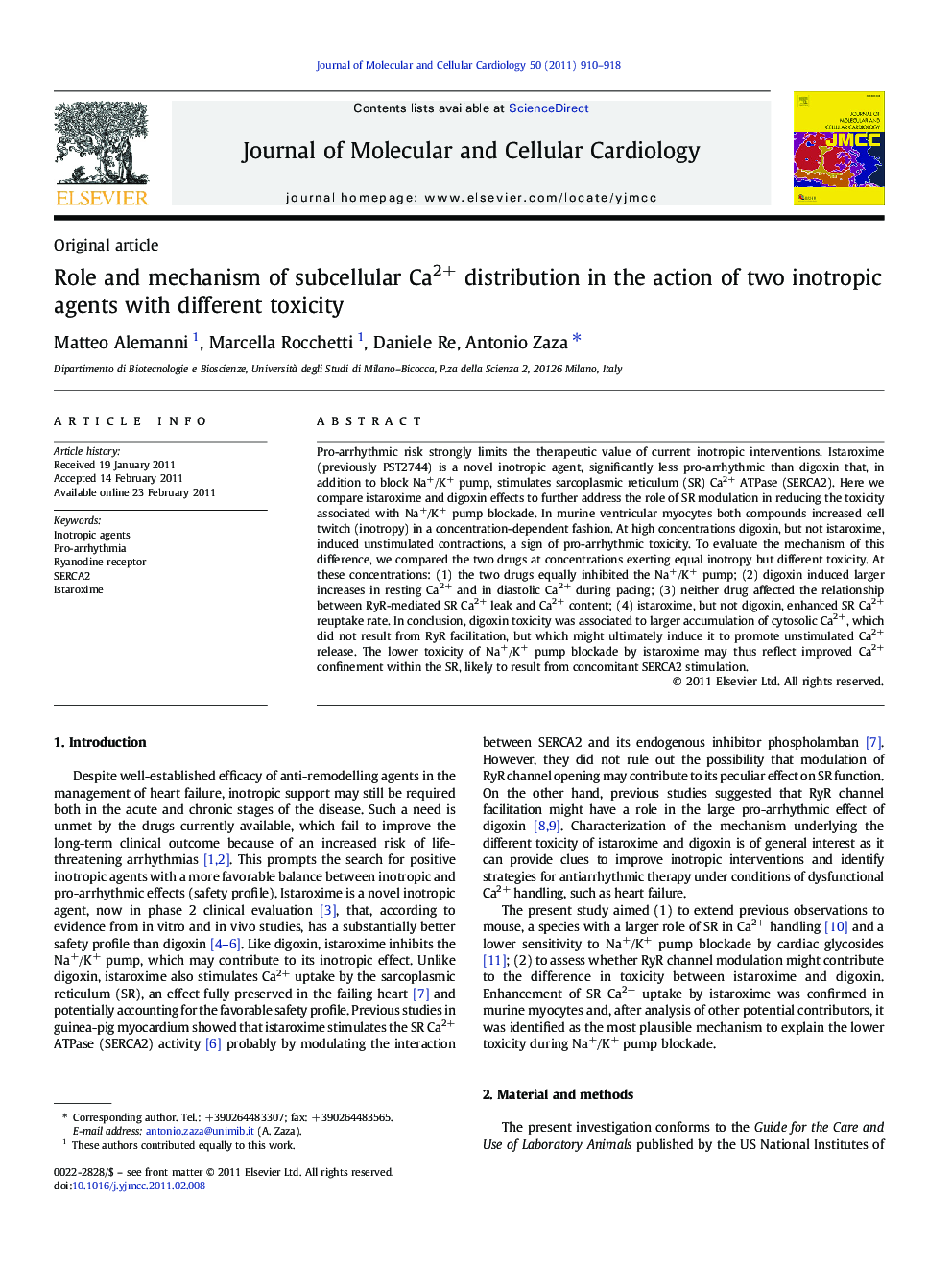| Article ID | Journal | Published Year | Pages | File Type |
|---|---|---|---|---|
| 2190890 | Journal of Molecular and Cellular Cardiology | 2011 | 9 Pages |
Pro-arrhythmic risk strongly limits the therapeutic value of current inotropic interventions. Istaroxime (previously PST2744) is a novel inotropic agent, significantly less pro-arrhythmic than digoxin that, in addition to block Na+/K+ pump, stimulates sarcoplasmic reticulum (SR) Ca2+ ATPase (SERCA2). Here we compare istaroxime and digoxin effects to further address the role of SR modulation in reducing the toxicity associated with Na+/K+ pump blockade. In murine ventricular myocytes both compounds increased cell twitch (inotropy) in a concentration-dependent fashion. At high concentrations digoxin, but not istaroxime, induced unstimulated contractions, a sign of pro-arrhythmic toxicity. To evaluate the mechanism of this difference, we compared the two drugs at concentrations exerting equal inotropy but different toxicity. At these concentrations: (1) the two drugs equally inhibited the Na+/K+ pump; (2) digoxin induced larger increases in resting Ca2+ and in diastolic Ca2+ during pacing; (3) neither drug affected the relationship between RyR-mediated SR Ca2+ leak and Ca2+ content; (4) istaroxime, but not digoxin, enhanced SR Ca2+ reuptake rate. In conclusion, digoxin toxicity was associated to larger accumulation of cytosolic Ca2+, which did not result from RyR facilitation, but which might ultimately induce it to promote unstimulated Ca2+ release. The lower toxicity of Na+/K+ pump blockade by istaroxime may thus reflect improved Ca2+ confinement within the SR, likely to result from concomitant SERCA2 stimulation.
Research Highlights► Mechanism of the different toxicity of istaroxime and digoxin were studied. ► Inotropy was achieved at lower diastolic Ca2+ with istaroxime. ► Differential drug effects on RyR function and Na+ /K+ pump were ruled out. ► Istaroxime, but not digoxin, stimulated SR Ca2+ uptake. ► Enhanced SR Ca2+ uptake may limit the toxicity of drugs increasing cell Ca2+.
